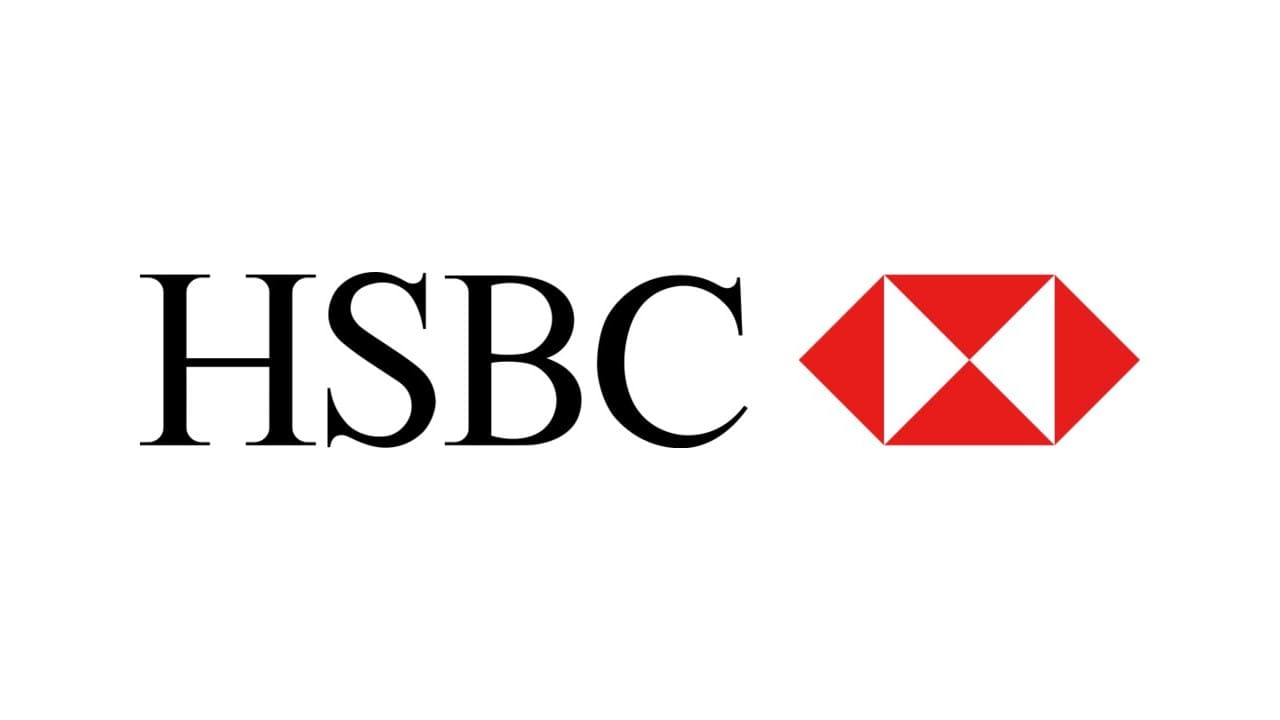
Our strength: remote banking introduction*
Responsiveness in real time on our chat online, in English or French, our permanent follow-up and our assistance included in all our packages.
The Premium Pack* : pay in 1 or 2 instalments
Pay in 1 instalment 1990 € + VAT.
Pay in 2 instalments, deposit 1 125 € + VAT.
- When you place your order, you will automatically receive an e-mail with a Company incorporation form to fill in.
- Payment can also be made by bank transfer: you can place your order above: during payment, you will be offered the option of paying by bank transfer; click on the “Bank transfer” box: when we receive your order, we will send you our bank details for your transfer, with the option of paying in 1 or 2 instalments.
![]() [email protected] (in english or french)
[email protected] (in english or french)
![]() +33667896739 (in french)
+33667896739 (in french) ![]() whatsapp (in french)
whatsapp (in french)

The Premium Pack includes :
- Company formation in Portugal without travel, banking introduction* HSBC.
- Ultra-fast assistance with banking introduction*.
- Bonus (free): 3 exclusive business ideas not yet exploited.
- We guarantee complete, high-quality services, with complete transparency and in a climate of trust; we guarantee real-time availability 6 days a week, 10 hours a day, follow-up and assistance… Find out what our customers say about us.
- Company incorporation time: approximately 5 days from signature and filing of documents with the Portuguese Registry.
- Would you like to be reassured about our services? No problem, we can provide you with the telephone details of one or more customers.
- Boost your business with our network of contacts throughout Europe (manufacturers, distributors, suppliers, resellers, local agents, logistics and goods receiving, etc.).
Banking introduction* (online banking, CB,...) to Revolut Business, Wise,... : €0 (included in all Companies incorporation orders)
OR
Assistance in English (an independent account manager, employed by the bank, calls you and takes care of your request to open an account with Revolut Business or with one of our other partners) : €290 + VAT.
OR
Banking introduction* in a real bank in Europe (French language), network of banking agencies in a country bordering France, with travel : €392 + VAT.
OR
Banking introduction* in a real bank, with a network of branches, WITHOUT TRAVEL (which is rare for a real bank), with of course online access, remotely and with an independent account manager, working for the bank, english and french : without travel, €392 + VAT.
OR

HSBC banking introduction* in a European Union country: €890 + VAT.

You can, of course, opt for an online banking introduction* (neo-banking: Revolut Business or another of our partners), which is included free of charge in all our Company incorporation packages.
SETTING UP A COMPANY IN PORTUGAL
The Portuguese government encourages foreign investment in the country, having put in place a number of incentives and tax benefits designed for large-scale investment in Portugal.
Portugal also offers financial benefits, tax breaks and assistance to small and medium-sized foreign companies investing in the country.
There is no discrimination regarding foreign investment in Portugal, where foreign companies are free to invest in almost any economic sector.
The incorporation process for foreign entities is very similar to that for local companies, where initiatives have been implemented to speed up the incorporation process to less than an hour in most cases. Very fast incorporation in Portugal starts from the moment you sign the documents we send you and travel to Portugal: allow one day.
There are three main forms of incorporation available for foreign companies in Portugal. Each of these forms of company has distinct advantages and disadvantages, as well as different business activities, registration requirements and minimum capital requirements. In most cases, this will depend on the degree of a company’s commitment to Portugal and the intended business activity.
When setting up a company in Portugal, you have the following options:
- Limited liability company
- Partnership
- Branch/Representative office
Limited liability companies
The structure of a limited liability company may be private or public.

Limited liability (private) company – the most popular type of company
The Limited Liability Company (Sociedade por Quotas, “LDA”) is recommended for entities wishing to set up a small-scale business in Portugal, with a low initial investment. It is the most widely used type of incorporation in Portugal, due to its convenience for small businesses and its simplified administrative and supervisory structure.
The LDA must be established by at least two founders; since 2011, there has been no minimum share capital, and the partners themselves set the amount of share capital. The liability of each shareholder is limited to the amount of his or her contribution.
The LDA is managed by a single director appointed by the General Meeting of Shareholders, who is the supreme authority of the Portuguese LDA.
In the Portuguese LDA, shareholders do not own shares, but “quotas”. Quotas represent the company’s capital and are described in the articles of association. The transfer of these quotas does not require a public deed, as a private document is sufficient.
Once incorporated, the LDA company is not subject to an annual audit if it meets two of the three requirements over the previous two years:
- Total assets under €1.5 million
- Total sales under €3 million
- Fewer than 50 employees

Limited liability company (public) – Obviously much less widely used than the Sociedade por Quotas, “LDA”.
The public limited company (Sociedade anónima, “S.A”) is better suited to those setting up a medium-sized or large company with high levels of investment capital and a more complex administrative and supervisory structure.
This is particularly appropriate for entities seeking to raise significant levels of financing. This form of incorporation also enables shares to be listed on the Portuguese Stock Exchange.
The S.A. must have at least five shareholders and a minimum share capital of €50,000. The liability of each shareholder is limited to the amount of his or her contribution.
The company is managed by a Board of Directors appointed by the General Meeting of Shareholders and supervised by the Supervisory Board.
There are two types of share: registered shares and bearer shares, which can take one of two forms of representation: held shares or scrip shares.
Once incorporated, the S.A. must undergo an annual audit.
Incorporation process
The incorporation process in Portugal is designed to be fast and efficient.
Register the name with the National Registry of Collective Entities (Registro Nacional de Pessoas Colectivas, RNPC)
A newly-created company must have its name checked with the RNPC to ensure that it is not being used in the register. If the name is available, it can be reserved for a period of 48 hours for a fee. Selection from the RNPC list of pre-approved names in the database is also an option. Once the name has been successfully processed, the company receives the name approval certificate.Open a bank account
A bank account must be opened by the founders, with a deposit for the minimum share capital required for each member.Obtain certificate of registration
The founders must apply for a Portuguese tax identification number from the National Register of Collective Entities (NIF: we take care of this).Registering employees
The entity must register all employees with the Centros de Formalidades das Empresas (CFE) or Commercial Registry offices 24 hours before the start of their activities, or no later than 10 days after the declaration of company creation (you can commission us to do this).Employers must also register employees with the local Portuguese social security authorities within 24 hours of the employment contract coming into effect (we can arrange this for you).
Notification to the labor inspectorate
The employer must provide the name of the company, the tax number, a copy of the company’s incorporation notice, a description of the company’s activity and the address of the registered office to the Labor Inspectorate (Inspecção-Geral do Trabalho) (we can arrange this for you).Insurance registration
The final step is to take out workers’ compensation insurance with a private insurer for all employees and managers who receive a regular salary. The insurance is underwritten by a private insurer and can be taken out after the company has started operations (we can arrange this for you).

Other, less frequently used company types
Partnerships
In Portugal, a partnership-type company is possible when there are at least two partners who will form the business entity. Partnership-type companies are common for professionals, such as lawyers and the liberal professions in general.
They are not often used as a method of incorporation in Portugal for most types of business, as the partners are subject to unlimited liability. A partnership-type company requires a deed signed by the partners, which describes the contribution of each partner, how profits will be distributed and the process for admitting new partners.
There are three types of partnership:

Limited partnership (Sociedade em Comandita Simples, “SC”)
A limited partnership is made up of at least two partners, at least one of whom is a general partner with unlimited liability for the company’s obligations, while the others have limited liability. The General Partner is responsible for all decisions within the partnership, and also has a monopoly on profits; he or she may share profits with the limited partner(s) as he or she sees fit. The limited partner(s) have no decision-making powers or rights over profits; in the event of their investment in the company (current account contribution, which cannot be considered as shares), the limited partner(s) can of course recover their investment. Limited partners are liable only to the extent of their financial contribution to the company. Limited partnerships have no minimum share capital requirements.
General partnership (sociedadeem nome colectivo, hereinafter “SNC”)
A general partnership is formed by at least two partners who have full responsibility for the company. Both partners are responsible for decisions and share profits.
General partnerships have no minimum share capital requirements.
Limited partnership with share capital (Sociedade em Comandita por Acções)
This is a third form of partnership, similar to the limited partnership, where there are both general and limited partners. The key difference is that the capital contributed by the limited partner must be divided into shares, making the limited partners shareholders. The minimum share capital is €50,000, with a minimum payment of 30% on incorporation; the Company’s name must include the name of at least one general partner.
Branch/Representative office
A branch (sucursal) or representative office (escritório de representação) can be set up by the foreign company operating under the company’s name while carrying out regular business activities. Foreign companies may find this option attractive, as it allows greater control: functions such as accounting, human resources and taxation are controlled by the foreign company, while the commercial function is carried out by the branch.
This type of legal entity is designed for those who do not intend to incorporate a fixed corporate structure.
Branches in Portugal are relatively easier to set up, as there are no minimum share capital requirements and financial involvement is ensured by the parent companies; branches are not considered autonomous legal entities and are rather extensions of foreign companies, so the responsibility for the branches lies with the parent companies.
The procedure for incorporating a branch is similar to that for a conventional Portuguese company. The name of the branch must be registered with the National Register of Legal Persons (RNPC), and the company must be entered in the Commercial Register. The following documents are required for this process:
- Parent company’s incorporating documents
- Documents from the parent company’s board of directors confirming the establishment of the branch office
- Power of attorney
- Certificate of registration
- Articles of association
- List of boards of directors and supervisory boards
- All documents must be written in or translated into Portuguese (we can of course take care of this for you).
A Portuguese branch is subject to the same treatment as a local company. It must be registered with social security, the labor inspectorate and a private insurer, similar to any normal incorporation process.

Clavero Alban
Mon comte Revolut Business a été ouvert et opérationnel en seulement une demi-journée !!
L’accompagnement était parfait. Fluide et d’une efficacité redoutable, qui a rendu le processus très simple. Merci 🙏🏼
(Clavero Alban, Avis 100% réels, preuves à l’appui) 17/04/25
Wafiq Khemili
Exceptionnel
(Wafiq Khemili, Avis 100% réels, preuves à l’appui) 16/04/25
Sébastien Le Borgne
rapide et éfficace, au top, super merci, super service, le call est top en meet avec la personne qui nous aide
(Sébastien Le Borgne, Avis 100% réels, preuves à l’appui) 16/04/25
Leuz Ndiaye
Réactivité, professionnalisme, bon relationnel
(Leuz Ndiaye, Avis 100% réels, preuves à l’appui ) 15/04/25
Sébastien Le Borgne
ohhh super rapide en effet 🙂
(Sébastien Le Borgne, Avis 100% réels, preuves à l’appui ) 15/04/25
H. Maidouni
J'ai eu une interaction extrêmement agréable avec le service compliance.
La responsable a répondu à une question avec une rapidité et une efficacité exceptionnelles, ce qui m'a été très utile et m'a permis d'exécuter ce que je devais faire.
(H. Maidouni, Avis 100% réels, preuves à l’appui ) 03/04/25
Anne-so Dujardin
Une cliente satisfaite et fidèle ! Simple, fluide, pratique et bon rapport qualité-prix pour les services proposés et rendus.
Merci pour leur excellent service ! (Anne-so Dujardin, Avis 100% réels, preuves à l’appui ) 07/04/25
Nathalie MICHEL
J'ai toujours eu une réponse rapide de leur part. J'ai eu affaire au service technique et ils sont très serviables et prêts à me fournir les informations dont j'ai besoin. Je les recommande. (Nathalie MICHEL, Avis 100% réels, preuves à l’appui ) 04/04/25
Jean M.
Toujours excellent… Cette société a toujours offert un service impeccable ! J'avais une question aujourd'hui et Erick m'a répondu en 30 minutes (peut-être plus rapidement). À notre époque où il est de plus en plus difficile d'obtenir un bon service, c'est tellement agréable de pouvoir compter sur une entreprise comme service-société.com pour me soutenir. (Jean M., Avis 100% réels, preuves à l’appui ) 09/04/25
Société FTD Express
Rapide et efficace Sans attendre au téléphone, j'ai parlé à Erick qui a répondu à mes questions rapidement et efficacement. Extrêmement serviable. (Société FTD Express, Avis 100% réels, preuves à l’appui ) 04/04/25
Soïzic Mireur
Leur réactivité est excellente et les réponses d’un haut niveau…. et c'est la troisième fois !!! Leur concept de redynamisation d’une activité est génial, leur maîtrise de la procédure de dissolution par TUP transfrontalière est parfaite !!.. (Soïzic Mireur, Avis 100% réels, preuves à l’appui ) 02/04/25
Bruno Marin
Agence de création d'entreprise et de services associés de qualité supérieure. Ils mettent tout en œuvre pour répondre rapidement à toutes vos questions. (Bruno Marin, Avis 100% réels, preuves à l’appui ) 31/03/25
Patrick Schwartz
J'ai bénéficié de l'assistance de 2 personnes du service client et j'ai bénéficié d'un accompagnement exemplaire : rapide et professionnel. Fortement recommandé. (Patrick Schwartz) 20/03/25
Nordine B.
J'ai récemment fait appel à service-société pour l'immatriculation de ma nouvelle entreprise au Royaume-Uni, et j'ai été extrêmement impressionné par leur service. Dès le début, leur équipe a fait preuve d'un professionnalisme, d'une expertise et d'un soutien exceptionnels, rendant le processus fluide. Merci à toute l’équipe pour toute votre aide. (Nordine B., 31/03/25)
N. Coll
Le service client de service-societe.com a été très rapide et efficace. Le responsable du service TUP m'a vraiment bien expliqué la tup transfrontalière. Je suis très satisfait. Je recommande ce site à tous les dirigeants de société qui rencontrent de graves difficultés (N. Coll, 29/03/25)
David C.
Utile - J'ai trouvé le chargé de clientèle très sympa, respecteux, et très compétent sur les services fournis, y compris les avantages et inconvénients dans différents pays (David C., 27/03/25)
SAM
L'expérience a été merveilleuse Du début à la fin, le suivi a été formidable et extrêmement enrichissant. Tout a été excellent et soigné, de la création de l'entreprise aux moindres détails. La personne en charge de mon dossier m'a expliqué étape par étape tout ce qui concernait la création de la société, l'acheminement du courrier et tout le reste. Un service excellent, 10/10. Ils m'ont accompagné du début à la fin et m'ont traité avec professionnalisme. Merci à toute leur formidable équipe. (SAM, 25/03/25)
Groomies
« Parfait, Top. Nous apprécions votre service et aimerions continuer à collaborer avec vous » (Groomies, 19/03/25) Avis 100% réels, preuves à l’appui
Olivier BLIN
« Tout est fait pour la société et je vous en remercie. Le compte Revolut est ouvert et j'ai reçu ma carte de paiement. » (Olivier BLIN, 19/03/25) Avis 100% réels, preuves à l’appui
André Choite MBAMY
« Ma gratitude envers Service Société Je tiens à exprimer ma gratitude envers Service Société pour son professionnalisme, sa rapidité et sa réactivité. Bien que juriste et docteur en droit exerçant en cabinet d'avocat à Paris, j'ai été particulièrement impressionné par leur expertise et leur efficacité dans la création d'une LLP à Londres.
Tout au long du processus, cette société a fait preuve d'une écoute attentive, d'une grande compétence et d'une rigueur exemplaire, offrant un accompagnement personnalisé et de qualité. Leur maîtrise du sujet et leur engagement en font un partenaire de confiance.
Je recommande vivement Service Société à toute personne souhaitant créer une entreprise en toute sérénité, avec un service réactif, fiable et professionnel. » (André Choite MBAMY, 10/03/25) Avis 100% réels, preuves à l’appui
Alban Clavero
"Merci ! Incroyable réactivité (pray)" (Alban Clavero, 26/02/25) Avis 100% réels, preuves à l'appui
Duc Destin
"Merci pour votre gentillesse et pour votre professionnalisme sans faille🙏 " (Duc Destin, 03/02/2025), Avis 100% réels, preuves à l'appui
Tidadini Mehdi
"J'ai eu de mauvaises expériences par le passé, Je suis content de vous avoir trouvé, de votre réputation et de votre travail, c'est très rare. Je suis 100% satisfait de votre rapidité et qualité de service. " (Tidadini Mehdi, 03/02/2025), Avis 100% réels, preuves à l'appui
GEORGIEV TUP
« Super » (Nikolay GEORGIEV TUP, 22/01/25) Avis 100% réels, preuves à l’appui
Lucas PINOSA
« Je suis satisfait de vos prestations pour la création de ma société à Malte, service client au top » (Lucas PINOSA, 19/01/25) Avis 100% réels, preuves à l’appui
Benjamin Marciano
« Super merci beaucoup ! » (Benjamin Marciano, 14/01/25) Avis 100% réels, preuves à l’appui
MOUSSOUS Mohamed
"Bon travail" (MOUSSOUS Mohamed, 13/01/25) Avis 100% réels, preuves à l'appui
Solal Cacoub
"Super, aucuns problèmes, merci" (Solal Cacoub, 13/01/25) Avis 100% réels, preuves à l'appui
Joël MAMELOUK
"Merci beaucoup pour votre rapidité" (Joël MAMELOUK, 13/01/25) Avis 100% réels, preuves à l'appui
Hajji Nassim
« Je tiens à remercier toutes les personnes qui m'ont accompagné » (Hajji Nassim, 06/01/25) Avis 100% réels, preuves à l’appui
Morgan Belhadj
« Super, parfait, merci à vous et merci de votre patience, et surtout de votre gentillesse que vous avez eu envers moi parce que j’ai été très compliqué» (Morgan Belhadj, 04/01/25) Avis 100% réels, preuves à l’appui
Sandra MENDEZ
« Merci pour votre efficacité » (Sandra MENDEZ, 03/01/25) Avis 100% réels, preuves à l’appui
Birama Coly SARR
« C'est ok le compte Revolut a été ouvert et activé pour ma société Business Solutions Design LLP Encore merci Birama » (Birama Coly SARR, 24/12/24) Avis 100% réels, preuves à l’appui
Maryline
« Bonjour, chatgpt m’a conseillé votre site pour créer une holding en Irlande. » (Maryline, Belgique, 24/12/24) Avis 100% réels, preuves à l'appui
Birama Coly SARR
"Je suis très satisfait de vos services, encore merci pour vos documents" (Birama Coly SARR, 12/12/24) Avis 100% réels, preuves à l'appui
Sandra MENDEZ
« Merci pour votre efficacité. » (Sandra MENDEZ, 05/12/24) Avis 100% réels, preuves à l’appui
Cheriff CHOUABBIA
« Vous faites un très bon travail » (Cheriff CHOUABBIA, 27/11/24) Avis 100% réels, preuves à l’appui
SAMB Alassane
Fondateur de l'enseigne Pizzas WOODIZ : « TOP, parfait, super, réactif, bonnes infos, rapide » (SAMB Alassane, 23/11/24) Avis 100% réels, preuves à l’appui
Philippe BORMS
Fondateur de l'enseigne EAT TO EAT : « Je suis satisfait de vos services » (Philippe BORMS, 28/11/24) Avis 100% réels, preuves à l’appui
Hakim Benotmane
Fondateur de l'enseigne en franchise Nabab Kebab et patron dans l’émission sur M6 « Patron Incognito » : « Top, parfait 👍, très très bien » (Hakim Benotmane, 23/11/24) Avis 100% réels, preuves à l’appui
Jérôme EBELLA « Kenzy »
Rappeur, éditeur, producteur et agent artistique, manager du groupe Ministère A.M.E.R. et fondateur, avec Frédéric Bride de la société Secteur Ä. Les deux rappeurs du groupe Ministère A.M.E.R., Stomy Bugsy et Passi, auront ensuite de nouveaux managers : « Je suis satisfait de vos services » (Jérôme EBELLA « Kenzy », 28/11/24) Avis 100% réels, preuves à l’appui
Jean TOFFIN
« Merci beaucoup pour votre diligence pour l’acquisition de la société. » (Jean TOFFIN, 28/11/24) Avis 100% réels, preuves à l’appui
CHOITE MBAMY Fochada
« Wowwww !!! Je vais donner votre contact. Magnifique !! » (CHOITE MBAMY Fochada, 02/11/24) Avis 100% réels, preuves à l’appui
Djilali Sadki
« Merci pour la réactivité et l’efficacité »(Djilali Sadki, 01/11/24) Avis 100% réels, preuves à l’appui
PICCINELLI David
« Propre et efficace....bravo! J ai d autres besoins on va en parler » (PICCINELLI David, 01/11/24) Avis 100% réels, preuves à l’appui
Bruno Péreira
« Bonjour, J'ai un retour de la banque le document a été validé. Merci » (Bruno Péreira, 18/10/24) Avis 100% réels, preuves à l’appui
Malik LIFA
«Merci de votre réactivité et votre professionnalisme » (Malik LIFA, 14/10/24) Avis 100% réels, preuves a l’appui
MAICAS Salomon
« Vous êtes super merci👍 » (MAICAS Salomon, 02/10/24) Avis 100% réels, preuves à l’appui
BONFILS Ludovic
« Parfait, rapide !!» ( BONFILS Ludovic, 24/09/24) Avis 100% réels, preuves à l’appui
Nacim Mahtallah
« Très satisfait » (Nacim Mahtallah, 05/09/24) Avis 100% réels, preuves à l’appui
Hervé LOUIT
« Super vous êtes au top, vous êtes très pro et sérieux » (Hervé LOUIT, 05/09/24) Avis 100% réels, preuves à l’appui
Frédéric HUGON
« 👍super » (Frédéric HUGON, 30/08/24) Avis 100% réels, preuves à l’appui
Jean-Claude DUCOUP
« Je suis satisfait de vos services! » (Jean-Claude DUCOUP, 16/08/24) Avis 100% réels, preuves à l’appui
Sébastien DROIT
« Juste parfait ! À la vue de ce premier projet je ne peux que vous recommander ! » (Sébastien DROIT, 13/08/24) Avis 100% réels, preuves à l’appui
Anthony BERNA
« super je suis très content de votre travail 😊😊😊 » (Anthony BERNA, 13/08/24) Avis 100% réels, preuves à l’appui
Benjamin MARCIANO
« Magnifique, merci » (Benjamin MARCIANO, 18/07/24) Avis 100% réels, preuves à l’appui
ELAMRI Faouzi
"C'est parfait" (ELAMRI Faouzi, 20/06/24) Avis 100% réels, preuves à l'appui
Alexandra CLUZEL
« Merci super c’est parfait » (Alexandra CLUZEL, 13/06/24) Avis 100% réels, preuves à l’appui
Gérard Massonne
« Parfait merci 🙏 » (Gérard Massonne, 12/06/24) Avis 100% réels, preuves à l’appui
Blanchard Euloge
"J'ai apprécié votre travail" (Blanchard Euloge, 04/06/24) Avis 100% réels, preuves à l'appui
Jérôme BRUY
« Merci d’avoir créé ma société à Malte. De plus, J’ai pu ouvrir mon compte HSBC grâce à votre service d’introduction bancaire, merci pour tout !… » (Jérôme BRUY, 01/06/24) Avis 100% réels, preuves à l’appui
Henri TALBOTIER
« Parfait Merci beaucoup ! »(Henri TALBOTIER, 29/05/24) Avis 100% réels, preuves à l’appui
« Kenzy » ex Ministère A.M.E.R, groupe de Hip-Hop
« Je suis très très content de vos services » 27/05/24 (« Kenzy » ex Ministère A.M.E.R, groupe de Hip-Hop) Avis 100% réels, preuves à l’appui
DESTIN Abonckelet
"Vous faites vraiment un bon boulot, merci pour votre professionnalisme" (DESTIN Abonckelet, 25/05/24) Avis 100% réels, preuves à l'appui
Ilias Moutani
« Franchement je suis très content, dès qu’on me demande je vous conseil » (Ilias Moutani, 09/05/24)
Mohamed BESSA
"C'est parfait, je vous fais confiance" (Mohamed BESSA, 07/05/24) Avis 100% réels, preuves à l'appui
SAINT-PRIX Pradeep
"Je suis très satisfait de la réactivité pour la holding. Je vais continuer à travailler avec vous. Top, merci encore à vous" (SAINT-PRIX Pradeep, 02/05/24) Avis 100% réels, preuves à l'appui
Dominique MARTELLA
« Très content de la création rapide , je vous en remercie » (Dominique MARTELLA, 25/04/24) Avis 100% réels, preuves à l’appui
Francois Pinguet
« Vous avez déjà immatriculé ma société …!!! C’est génial !! » (Francois Pinguet, 23/04/24) Avis 100% réels, preuves à l’appui
Samira Maouda
« Merci d’avoir créé notre société, pour votre aide et le suivi » (Samira Maouda, 23/04/24) Avis 100% réels, preuves à l’appui
Ilias Moutani
« C’est parfait merci beaucoup pour tout » (Ilias Moutani, 16/04/24) Avis 100% réels, preuves à l’appui
TASSELLI Amael,
"Super merci" (TASSELLI Amael, 16/04/24) Avis 100% réels, preuves à l'appui
ROIKONEN
(ROIKONEN , 25/03/24) Avis 100% réels, preuves à l'appui
Anne-Sophie Zerbib
« Formidable ! Je suis ravie de travailler avec vous. J'apprécie votre efficacité 👍 » (Anne-Sophie Zerbib, 25/03/24) Avis 100% réels, preuves à l’appui
Anaelle JUGE
"Super merci génial!! Toujours aussi efficace! » Anaelle JUGE, 19/03/24) Avis 100% réels, preuves à l'appui
Aaron Cohen Azran
« Très satisfait » (Aaron Cohen Azran, 11/03/24) Avis 100% réels, preuves à l’appui
Thierry Krieger
« Merci pour votre efficacité. » (Thierry Krieger, 01/03/24) Avis 100% réels, preuves à l’appui
Omar Hadjadj
« Parfait » (Omar Hadjadj, 02/03/24) Avis 100% réels, preuves à l’appui
Lionel LAWSON
« Je suis satisfait de vos services qui ont été très utiles pour moi. Je vous remercie de votre professionnalisme, de votre célérité et je n’hésiterai pas à transmettre vos coordonnées. » (Lionel LAWSON, 01/03/24) Avis 100% réels, preuves à l’appui
Florian MEUNIER
"OK top. Merci beaucoup pour votre professionnalisme. Vous êtes un top dans votre domaine car vous êtes quelqu'un de direct, j'aime beaucoup" (Florian MEUNIER, 28/02/24) Avis 100% réels, preuves à l'appui
William Bailly
« Très satisfait » (William Bailly, 26/02/24) Avis 100% réels, preuves à l’appui
Rabah Medjane
« Je suis très satisfait de vos services surtout de votre réactivité. Je me fais plaisir de partager votre Société. » (Rabah Medjane, 26/02/24) Avis 100% réels, preuves à l’appui
Avis service-societe.com
« Je tenais à vous remercier pour votre travail et votre professionnalisme. Votre expertise est très appréciée, 👍et je n'hésiterai pas à faire appel à vos services pour de futures prestations dans votre domaine de compétence. Merci encore. » (Wilfried Azade, 07/10/24) Avis 100% réels, preuves à l’appui
Guy BARBET
"AU TOP" (Guy BARBET, 19/02/24) Avis 100% réels, preuves à l'appui
Yannick LE CORRE
"Merci bcp. Travail très efficace de votre part" (Yannick LE CORRE, 12/02/24)
Florian MEUNIER
« J’ai une entière confiance en vous et en votre professionnalisme. » (Florian MEUNIER, 31/01/24) Avis 100% réels, preuves à l’appui)
Medjane Rabah
« Merciiii beaucoup » (Medjane Rabah, 23/01/24) Avis 100% réels, preuves à l’appui
Valérie TASSELI
"Génial" (Valérie TASSELI, 16/01/24) Avis 100% réels, preuves à l'appui
Vincent CHEVALIER
"C'est parfait, merci" (Vincent CHEVALIER, 09/01/24) Avis 100% réels, preuves à l'appui
Georgios Bouronikos
« Bonjour 🙂 vous êtes un vendeur adorable 🙂 » (Georgios Bouronikos, 05/01/24) Avis 100% réels, preuves à l’appui
Robin NICOLET
« Parfait merci pour votre professionnalisme à 100 % croyez moi je parle de vous a beaucoup de gens. Vous méritez que votre société puisse avoir des clients énormes, c’est sincère et je le pense. » (Robin NICOLET, 14/12/23) Avis 100% réels, preuves à l’appui
Daniel GOEDRAAD
"Merci pour votre patience👍💪👏 excellent et merci" (Daniel GOEDRAAD, 11/12/23) Avis 100% réels, preuves à l'appui
CRETU Florin
« Merci pour vos services » (CRETU Florin, 11/12/23) Avis 100% réels, preuves à l’appui
Konstantatos Nicolas
« Parfait et bravo » (Konstantatos Nicolas, 06/12/23) Avis 100% réels, preuves à l’appui
Mostapha EL ASRi
« Merci, au top »Mostapha EL ASRi, 06/12/23) Avis 100% réels, preuves à l’appui
Dominique BIDAUD
« Très satisfait » (Dominique BIDAUD, 20/11/23) Avis 100% réels, preuves à l’appui
Xavier Rossignol
« Parfait merci » ( Xavier Rossignol, 10/11/23) Avis 100% réels, preuves à l’appui
Bilal DERARD
« On est ravis de vos service merci encore ! » (Bilal DERARD, 06/11/23) Avis 100% réels, preuves à l’appui
Lionel LAWSON
« Merci pour vos services rendus » (Lionel LAWSON, 27/10/23) Avis 100% réels, preuves à l’appui
Ilias MOUTANI
"Vous travaillez de manière pro, c'est rare👍 " (Ilias MOUTANI, 19/10/23) Avis 100% réels, preuves à l'appui
Giorgios Bouronikos
« Merci beaucoup pour votre disponibilité et aide. » (Giorgios Bouronikos, 06/10/23) Avis 100% réels, preuves à l’appui)
Kamel Hadji
« Je vous ai conseillé, on ne peut pas vous enlever votre rapidité (Kamel Hadji, 02/10/23) Avis 100% réels, preuves à l’appui
Albéric Bonjean
"OK génial merci" (Albéric Bonjean, 27/09/23) Avis 100% réels, preuves à l'appui
David Zachara
« ok super merci excellent» (David Zachara, 26/09/23) Avis 100% réels, preuves à l’appui
Anne-Laure DUPORGE
« Sachez que je suis complètement satisfaite de vos services, votre réactivité et vos explications ont répondu à nos demandes pour la création de notre société et je n'oublie pas ce genre de choses 🙂 , j’ajoute que vous êtes excellent dans ce que vous faites » (Anne-Laure DUPORGE, 23/09/23) Avis 100 % réels, preuves à l’appui
Robin Nicolet
« Nous sommes satisfait du service qui a été effectué et nous vous en remercions » (Robin Nicolet, 23/09/23) Avis 100 % réels, preuves à l’appui
William Bailly
« je suis très satisfait de votre service, nous allons continuer notre collaboration, je vais donc faire ma succursale française, encore un grand merci pour la collaboration votre professionnalisme ne peut que vous honoré » (William Bailly, 21/09/23) Avis 100% réels, preuves à l’appui
Kamel Hadji
« Très bien rapide et efficace » (Kamel Hadji, 15/09/23) Avis 100% réels, preuves à l’appui
Wilfried AZADE
"C'est TOP" (Wilfried AZADE, 14/09/23) Avis 100% réels, preuves à l'appui
Kamel Hadji
« Super top merci » (Kamel Hadji, 06/09/23) Avis 100% réels, preuves à l’appui
Yvan ERBS
« Vous avez été parfait, merci, très satisfait » (Erbs Yvan, 06/09/23) Avis 100% réels, preuves à l’appui
GIMEL Laurent
"Super" (GIMEL Laurent, 01/09/23) Avis 100% réels, preuves à l'appui
Ilias Moutani
« OK top, bien reçu, c’est parfait 👍 , merci pour votre réactivité » (Ilias Moutani, 25/08/23) Avis 100% réels, preuves à l’appui
Géoffroy PAICHELER
"Bravo pour votre réactivité, Je suis content de vos prestations" (Géoffroy PAICHELER, 23/08/23) Avis 100% réels, preuves à l'appui
Bruno SCARPA
"Parfait merci, top" (Bruno SCARPA, 17/08/23) Avis 100% réels, preuves à l'appui
Mohamed Z.
"La réunion en ligne s'est bien déroulée. Personne très sympa. Nous attendons les documents pour la BG Garantie Bancaire pour pouvoir effectuer le onboarding. Merci à vous" (Mohamed Z., 17/08/23) Avis 100% réels, preuves à l'appui
Mohamed ZEGHIB
"Très bien" (Mohamed ZEGHIB, 14/08/23) Avis 100% réels, preuves à l'appui
Franck Boizot
« Super » (Franck Boizot, 12/08/23) Avis 100% réels, preuves à l’appui
Adrien LOMBARD
« OK parfait » (Adrien LOMBARD, 08/08/23) Avis 100% réels, preuves à l’appui
Paul-marie Vouvou
« Génial, merci beaucoup » (Paul-marie Vouvou, 07/08/23) Avis 100% réels, preuves à l’appui
Ryann Guillonnet
« Génial, merci » (Ryann Guillonnet, 21/07/23) Avis 100% réels, preuves a l’appui
Guillaume Chocat
« Parfait merci bien » (Guillaume Chocat, 16/07/23) Avis 100% réels, preuves à l’appui
Adrien Lombard
« Merci beaucoup » (Adrien Lombard, 11/07/23) Avis 100% réels, preuves à l’appui
Daniel Plastivene
« Merci d'avoir coordonné tout ça, sincèrement, je n'hésiterai pas à retourner vers vous pour d'autres projets » (Daniel Plastivene, 06/07/23) Avis 100% réels, preuves à l’appui
Stéphane Dupain
« c'est propre. Je n'ai pas de remarque et vous fait confiance.» (Stéphane Dupain, 06/07/23) Avis 100% réels, preuves a l’appui
William Bailly
« j'ai reçu ma carte hier » (William Bailly, 06/07/23) Avis 100% réels, preuves à l’appui
Zuka Jelena
« Super merci pour votre réactivité » (Zuka Jelena, 05/07/23) Avis 100% réels, preuves à l’appui
Bilal DERARD
« Super nous somme ravis, Merci pour tout. Je tenais à vous en informer pour la qualité et la rapidité de vos services. Je vous informe aussi que je compte encore faire appel à vos services pour la création de mes succursale en Belgique et en France.» (Bilal DERARD, 05/07/23) Avis 100 % réels, preuves à l’appui
Paul GLATIGNY
« Bonjour, pour la qualité de vos services parfait. merci par avance. » (Paul GLATIGNY, 23/06/23) Avis 100% réels, preuves à l’appui
Robin David NICOLET
« Je vous remercie 🙏🙏🙏 Nous sommes ici à la bonne place et au bon moment avec les bonnes personnes 🙏 , Merci beaucoup pour votre travail. C'est un travail rapide et de qualité !!! Encore une fois bravo pour votre professionnalisme et votre rapidité» (Robin David NICOLET, 22/06/23 et 26/06/23) Avis 100% réels, preuves à l’appui
Anne-Laure DUPORGE
« Vous avez toujours été réactif et efficace depuis le départ, et là votre geste me prouve que l'on ne s'est pas trompés. Vous travaillez sur le long terme et c'est parfait car nous recherchons la même chose » (Anne-Laure DUPORGE, 22/06/23) Avis 100% réels, preuves à l’appui
David SEROUSSI
"Merci pour votre efficacité " (David SEROUSSI, 16/06/2023) Avis 100% réels, preuves à l'appui
Henri TALBOTIER
« Merci beaucoup, c’est parfait, ravi de votre service ! » (Henri TALBOTIER, 14/06/23) Avis 100% réels, preuves à l’appui
William Bailly
« je vous remercie j'ai pu enfin ouvrir mon compte bancaire je vais avoir le numéro dans l'après-midi je pourrai donc effectuer les premières rentrées d'argent, merci à vous » (William Bailly, 13/06/23) Avis 100% réels, preuves à l’appui
Henri TALBOTIER
« merci beaucoup c’est génial » (Henri TALBOTIER, 12/06/23) Avis 100% réels, preuves à l’appui
Alexandra CLUZEL
« Super, merci, nickel » (Alexandra CLUZEL, 12/06/23) Avis 100% réels, preuves à l’appui
Aymen Bayèche
« OK parfait » (Aymen Bayèche, 07/06/23) Avis 100% réels, preuves a l’appui
M. Essombe
« Très satisfait, Merci pour votre disponibilité. » (M. Essombe, 30/05/23) Avis 100% réels, preuves à l’appui
Philippe LACOSTE
"Nickel, merci de votre aide" (Philippe LACOSTE, 29/05/23) Avis 100% réels, preuves à l'appui
HENRI TALBOTIER
« Merci beaucoup » ( HENRI TALBOTIER, 27/05/23) Avis 100% réels, preuves à l’appui
Ralph Pinto
« Parfait, merci beaucoup » (Ralph Pinto, 26/05/23) Avis 100% réels, preuves à l’appui
Elbak Soule
« Merci, vous êtes les meilleurs ! » (Elbak Soule, 25/05/23) Avis 100 réels, preuves à l’appui
Eric BREDA
« Parfait merci » (Eric BREDA, 23/05/23) Avis 100% réels, preuves à l’appui
Mustapha Gherras
« Fantastique » (Mustapha Gherras, 11/05/23) Avis 100% réels, preuves à l’appui
Hassen LASSOUED
« Good job 👍 Professionnalisme 👍 Merci » (Hassen LASSOUED, 10/05/23) Avis 100% réels, preuves à l’appui
Lionel LAWSON
« Je suis satisfait des services rendus par vos services.. nickel, la société est opérationnelle. » (Lionel LAWSON, 10/05/23) Avis 100% réels, preuves à l’appui
Elbak SOULE
"Superbe nouvelle ! Merci beaucoup , très content 😊 Parfait ! 👍 et merci pour le suivi " (Elbak SOULE, 28/04/23) Avis 100% réels, preuves à l'appui
Ben Salmi
« Très bien, très sérieux à recommander » (Ben Salmi, 24/04/23) Avis 100% réels, preuves à l’appui
Stéphane DUPAIN
« Je vous remercie de votre sérieux » ( Stéphane DUPAIN, 17/04/23) Avis 100% réels, preuves à l’appui
Mohammed Réda Malouda
« je suis très content de votre prestation jusqu’à présent rapidité et professionnalisme » (Mohammed Réda Malouda, 13/04/23) Avis 100% réels, preuves à l’appui
Nassim Zekhnini
« Super service » (Nassim Zekhnini, 08/04/23) Avis 100% réels, preuves à l’appui
D. Seroussi
« Au plaisir de perpétuer notre relation professionnelle »(D. Seroussi, 03/04/23) Avis 100% réels, preuves à l’appui
Badi Garnaoui
« C'est bon la banque à accepter les virements grâce à votre partenaire pour l’introduction bancaire, ils viennent de me faire un transfert vers la Tunisie » (Badi Garnaoui, 03/04/23) Avis 100% réels, preuves à l’appui
Achraf Zelmat
« La réactivité du service est bluffante, on n'avait plus l'habitude. Les engagements sont tenus. » (Achraf Zelmat, 30/03/23) Avis 100% réels, preuves à l’appui
Nicolas
« un simple mot pour vous remercier du service courtois et professionnel dont vous nous avez fait bénéficier, Il nous fera plaisir de vous recommander auprès de notre entourage et nous tenions à vous l’écrire Au plaisir d’une autre collaboration ensemble Salutations » (Nicolas) Avis 100% réels, preuves à l’appui
SIPPC LLP
« Temps record de création de la société, très attentif, répond sans gêne a tous nos questions, je recommande vraiment » (SIPPC LLP) Avis 100% réels, preuves à l’appui
Nassim Zekhnini
« Un grand merci » (Nassim Zekhnini, 27/03/23) Avis 100% réels, preuves à l’appui
Redjala Adel
« Super merci beaucoup » (Redjala Adel, 27/03/23) Avis 100% réels, preuves à l’appui
Benadda Kouider
« Un grand merci ! » (Benadda Kouider, 22/03/23) Avis 100% réels, preuves à l’appui
Thierry KRIEGER
"Top, Super merci beaucoup" (Thierry KRIEGER, 20/03/23) Avis 100 % réels, preuves à l'appui
Samir Bourouf
« Merci pour votre réactivité, vous êtes au top » (Samir Bourouf, 16/03/23)
Roland Garcia
« Merci pour vos diligences » (Roland Garcia, 11/03/23) Avis 100% réels, preuves à l’appui
Olivier Mehdi
« Supeeer, merci » (Olivier Mehdi, 03/03/23) Avis 100% réels, preuves à l’appui
LIMA Anthony
"Super merci beaucoup" (LIMA Anthony, 28/02/23) Avis 100% réels, preuves à l'appui
Christian EL DEBS
"Parfait merci beaucoup" (Christian EL DEBS, 28/02/23) Avis 100% réels, preuves à l'appui
Willy L.
« l’accompagnement est vraiment au top ! » (Willy L. , 24/02/23) Avis 100% réels, preuves à l’appui
Kouassi Aimé Malanhoua
« Je suis satisfait du service rendu. Bien à vous. » (Kouassi Aimé Malanhoua, 16/02/23) Avis 100% réels, preuves à l’appui
Samir MANI
"Merci encore pour votre réactivité, ça m'aide beaucoup" (13/02/23, Samir MANI) Avis 100% réel, preuve à l'appui
Damien Léonetti
« Je suis ravi, je vous remercie » (Damien Léonetti, 04/02/23) Avis 100% réels, preuves à l’appui
ZIATA Amirouche
« Je viens de recevoir le certificat d’enregistrement de la société , Je vous remercie pour votre professionnalisme » (ZIATA Amirouche. 02/02/23) Avis 100% réels, preuves à l’appui
Delphine Picagne
« vous êtes parfait et satisfait de vos services. Merci » ( Delphine Picagne, 27/01/23) Avis 100% réels, preuves à l’appui
Nicolas Coll
"Réponse de la banque : Le service conformité a validé votre dossier, votre compte est bien ouvert. Merci pour votre confiance." (Nicolas Coll, 19/01/23)
Mukandila Mujinga
« Super » (Mukandila Mujinga, 18/01/23) Avis 100% réels, preuves à l’appui
Willy L.
« Merci pour l’accompagnement » (Willy L. , 16/01/23) Avis 100% réels, preuves à l’appui
Elisabete De Sousa
"Génial" (16/01/23, Elisabete De Sousa) Avis 100% réels, preuves à l'appui
Dominique MICHEL
"Merci beaucoup...compte société" (Dominique MICHEL, 11/01/23) Avis 100% réels, preuves à l'appui
Gregory Arm
« Merci beaucoup, très appréciable » (Gregory Arm, 09/01/23) Avis 100% réels, preuves à l’appui
Julian Sailley
« Top ! Super ! » (Julian Sailley, 03/01/23) Avis 100% réels, preuves à l’appui
Farès Azzoug
«Merci beaucoup, je suis totalement satisfait de la prestation » (Farès Azzoug, 28/12/22) Avis 100% réels, preuves à l’appui
Touradj Backhtiar
« Très bien, merci beaucoup » (Touradj Backhtiar, 28/12/22) Avis 100% réels, preuves à l’appui
Laurent Quéhen
« Je suis très satisfait de la rapidité de la mise en place de la société en GB et de la disponibilité ainsi que des conseils avisés d’Erick .Je recommande ! » (Laurent Quéhen, 24/12/22) Avis 100% réels, preuves à l’appui)
Farès Azzoug
« super je vous remercie 🙏 » (Farès Azzoug, 23/12/22) Avis 100% réels, preuves à l’appui
Aykel Mejri
« Parfait » (Aykel Mejri, 20/12/22) Avis 100% réels, preuves à l’appui
Yanis Taferand
« Vous travaillez vraiment a toute heure Franchement Bravo » (Yanis Taferand, 06/12/22) Avis 100% réels, preuves à l’appui
CY
« La banque vient de me contacter, merci » (CY, 15/12/22) Avis 100% réels, preuves à l’appui
Richard Pascal
"Nous avons été contents de votre accompagnement et de votre professionnalisme" Richard Pascal, (13/12/22) Avis 100% réels, preuves à l'appui
AGC Financement
« Super, c’est une bonne nouvelle, je suis très satisfait, j’ai reçu les documents » (Alexandre Dauriac, 12/12/22) Avis 100% réels, preuves à l’appui
Mounguengue Goma Franky
« merci, c’est un plaisir de trouver une franche collaboration avec vous » (Mounguengue Goma Franky, 11/12/22) Avis 100% réels, preuves à l’appui
Léo Dulice
"Parfait, t'es un chef, merci" (Léo Dulice, 09/12/22) Avis 100% réels, preuves à l'appui
AGC Financement
Nouvelle satisfaction « Parfait » (AGC Financement, le 09/12/22) Avis 100% réels, preuves à l’appui
Yanis TAFERAND
"Très satisfait, merci" (Yanis TAFERAND, 02/12/22) Avis 100% réels, preuves à l'appui
Corinne YOËL
"Super vous êtes au top! Merci" (Corinne YOËL, 24/11/22) Avis 100% réels, preuves à l'appui
Dominique MICHEL
"Parfait, merci beaucoup" (Dominique MICHEL, 24/11/22) Avis 100% réels, preuves à l'appui
Tachefine AJDIR
"Merci 👍 c'est très rapide" (Tachefine AJDIR, 23/11/22) Avis 100% réels, preuves à l'appui
C. YOËL
« Merci infiniment » (C. YOËL, 22/11/22) Avis 100% réels, preuves à l’appui
Mdioui Mohamed
« Merci pour vos services, merci pour le travail que vous avez effectué, vous avez fait le travail que je vous est demandé. Je vous recommanderai avec conviction à d'autres personnes. Cordialement » (Mdioui Mohamed, 11/11/22) Avis 100% réels, preuves à l’appui
Jérôme BOLAND
"Un grand merci" (Jérôme BOLAND, 08/11/22) Avis 100 % réels, preuves à l'appui
Erwan DELBART
"Parfait merci, on est tous satisfait 🙂 on ouvre le compte en ligne actuellement" (Erwan DELBART, 07/11/22) Avis 100% réels, preuves à l'appui
A. GHASSANI
"je suis très satisfait" (A. GHASSANI, 04/10/22) Avis 100% réels, preuves à l’appui
Etienne Mbaussègue
« Merci beaucoup, je vous suis infiniment reconnaissant » ( Etienne Mbaussègue, 31/10/22) Avis 100% réels, preuves à l’appui)
El Debs Christian
« Parfait merci beaucoup » (El Debs Christian, 29/10/22) Avis 100% réels, preuves à l’appui
Daniel MOUZITA
« Merci pour les documents et le travail fait. » (Daniel MOUZITA, 27/10/22) Avis 100% réels, preuves à l’appui)
Samir MANI
"Super, merci beaucoup" (Samir MANI, 25/10/22) Avis 100% réels, preuves à l'appui
Nino Paganelli
"Impeccable" (Nino Paganelli, 25/10/22) Avis 100% réels, preuves à l'appui
Guillaume GABILLET
« oui très bien ça m'a enlevé pas mal de problème ! Parfait, merci à vous »
(Guillaume GABILLET, 18/10/22) Avis 100 % réels, preuves à l’appui
HASSANE Adel
"Vous avez fait votre travail, je vous remercie pour vos services, vous êtes irréprochables, "
(HASSANE Adel, 13/10/22) Avis 100% réels, preuves à l'appui
Bilal ZIANE
« on avance, avec le compte bancaire physique on peut démarrer l'activité sur de bons rails avec votre assistance, merci infiniment »
(Bilal ZIANE, 10/10/22) Avis 100% réels, preuves à l’appui
Florian SKERRA
"Votre travail a été très bien fait et je vous remercie de la gentillesse que vous avez accordé à l'élaboration d'une solution pour avancer à chacune des étapes malgré la complexité de la situation"
(Florian SKERRA, 07/10/22) Avis 100% réels, preuves à l'appui
Adel HASSANE
"Parfait...excellent"
(Adel HASSANE, 07/10/22) Avis 100% réels, preuves à l'appui
Dominique ABAD
« Merci beaucoup pour la qualité de votre travail »
(Dominique ABAD, 06/10/22) Avis 100% réel, preuves à l’appui
David ZACHARA
« Merci Top… Super… ouverture de compte »
(David ZACHARA, 30/09/22) Avis 100% réels, preuves à l’appui
Alexandre Delaunay
« Impeccable... merci pour la création de la société !»
(Alexandre Delaunay, 29/09/22) Avis 100% réels, preuves à l’appui
Pascal Lusci
« Top merci à vous »
(Pascal Lusci, 28/09/22) Avis 100% réels, preuves à l’appui
Florian SKERRA
"C'est parfait"
(Florian SKERRA, 22/09/22) Avis 100% réels, preuves à l'appui
Elbak SOULE
Merci beaucoup pour ce boulot de grande qualité. J'en suis ravis et très satisfait. Merci à vous ! » (Elbak SOULE, 20/09/22) Avis 100% réels, preuves à l’appui)
RARBI Abdel-Magid
"Parfait"
(RARBI Abdel-Magid, 16/09/22) Avis 100 % réels, preuves à l’appui
Karim MESSAOUDI
« Merci pour votre service et votre sérieux »
(Karim MESSAOUDI, 16/09/22) Avis 100 % réels, preuves à l’appui
Elbak Soule
"Merci beaucoup pour votre réactivité et votre disponibilité."
(Elbak Soule, 15/09/22) Avis 100 % réels, preuves à l'appui
Guy-Maixent Onga-Nkwenkeu
« Je connais la qualité de votre travail…depuis que j'ai eu mes déboires avec ma banque j'ai fait appel à plusieurs structures et votre compagnie s'est révélée être la plus professionnelle »
(Guy-Maixent Onga-Nkwenkeu, 26/08/22) Avis 100% réels, preuves à l’appui
Ryann Guillonnet
« Niquel, le compte est bien créé 🙏 »
(Ryann Guillonnet, 14/09/21) Avis 100% réels, preuves à l’appui
Ryann GUILLONNET
« Génial !! Merci beaucoup »
(Ryann GUILLONNET, 13/09/22) Avis 100 % réels, preuves à l’appui
Dominique ABAD
« Je vous remercie pour votre aide et votre sérieux »
(Dominique ABAD, 12/09/22) Avis 100 % réels, preuves à l’appui
Alain DECANT
"Très satisfait"
(Alain DECANT, 01/09/22) Avis 100% réels, preuves à l'appui
Jean-Philippe VERM
« Rapidité… efficacité !! Toutes mes félicitations »
(Jean-Philippe VERM, 19/08/22) Avis 100 % réels, preuves à l’appui
Guy-Maixent Onga-Nkwenkeu
« J’ai bien ouvert mon compte bancaire à la Lloyds, je vous remercie »
(Guy-Maixent Onga-Nkwenkeu), 17/08/22) Avis 100 % réels, preuves à l’appui
Laurent CACCAMO
"Merci de votre implication efficace comme toujours"
(Laurent CACCAMO, 16/08/22) Avis 100 % réels, preuves à l'appui
Salif
« Nous sommes satisfaits de la création de la société »
(Salif, 10/08/22) Avis 100% réel, preuve à l’appui
Stéphane Baldacchino
« Je suis bien content de connaître votre entreprise »
(Stéphane Baldacchino, 10/08/22) Avis 100% réel, preuve à l’appui
Patrick FOVEZ
« Bravo, rapide et efficace ! Parfait, merci. Avoir un interlocuteur français et à l'écoute est très rassurant. »
(Patrick FOVEZ, 05 août 22) Avis 100% réel, preuve à l’appui
Daniel Mouzita
Très satisfait du traitement et de la réactivité.
(Daniel Mouzita, 18/07/22) Avis 100% réel, preuve à l’appui
Jacques Lalou
Service 5 étoiles (08/07/22)
Avis 100 % réels, preuves à l'appui
Mohamed Bessa
Parfait 👍 (11/04/22)
Avis 100 % réels, preuves à l'appui
Hakim S
Très professionnel, réactif et disponible surtout c’est important 👍 (24/03/22)
Avis 100 % réels, preuves à l’appui
Mat.
Nous sommes satisfait de la rapidité de la création de société (24/03/22)
Avis 100 % réels, preuves à l’appui
Boudairon
Je suis satisfaite des services de Service-societe, j'ai pu créer une société à l'étranger rapidement avec un bon rapport qualité/prix. Il y a un contact en langue française, ce qui est très appréciable. (24/03/22)
Avis 100 % réels, preuves à l’appui
Steeves Sfez
Merci pour votre réactivité votre diligence, votre sympathie, votre professionnalisme. J'avoue avoir été bluffé. Je vous promets beaucoup de retour (24/03/22)
Avis 100 % réels, preuves à l’appui
Guillaume Gabillet
C'est bon, extrait k-bis OK,
Merci pour votre professionnalisme.
A bientôt Guillaume (18/03/22)
Avis 100 % réels, preuves à l’appui
Jean-Marc S.
J'ai bien mon compte à la Lloyds (27/01/22)
Avis 100 % réels, preuves à l’appui
Mourad
Oui j'ai le RIB, TOP. (27/01/22)
Avis 100 % réels, preuves à l’appui
Bertrand P
J'ai bien mon compte en banque. Parfait merci (27/01/22)
Avis 100 % réels, preuves à l’appui
HC
Merci beaucoup pour votre réactivité (26/01/22)
Avis 100 % réels, preuves à l’appui
Raphaël V.
Merci Bien reçu (25/01/22)
Avis 100 % réels, preuves à l’appui
Hélias
Parfait (25/01/22)
Avis 100 % réels, preuves à l’appui
SO.
Good job (20/01/22)
Avis 100 % réels, preuves à l’appui
Raphaël V.
Je suis satisfait (19/01/22)
Avis 100 % réels, preuves à l’appui
Sofiane O
Parfait, merci (17/01/22)
Avis 100 % réels, preuves à l’appui
Ridan
Mille mercis (02/01/22)
Avis 100 % réels, preuves à l’appui
Claudine T.
Merci infiniment (15/12/21)
Avis 100 % réels, preuves à l’appui
Laurent G
très bien très réactif et rapide (13/12/21)
Avis 100 % réels, preuves à l’appui
Mounir B.
Merci à vous pour votre gentillesse et professionnalisme (09/12/21)
Avis 100 % réels, preuves à l’appui
Amradouch
Génial super parfait et merci pour les réponses (09/12/21)
Avis 100 % réels, preuves à l’appui
Mohamed S.
Très bien parfait merci (03/12/21)
Avis 100 % réels, preuves à l’appui
CED
Parfait merci beaucoup (01/12/21)
Avis 100 % réels, preuves à l’appui
GC
Parfait, bon boulot (30/11/21)
Avis 100 % réels, preuves à l’appui
M. Sassi
Ok parfait (29/11/21)
Avis 100 % réels, preuves à l’appui
Sami l.
Réponses bien claires, merci (29/11/21)
Avis 100 % réels, preuves à l’appui
D. Emeriau
Je vous remercie pour vos réponses (29/11/21)
Avis 100 % réels, preuves à l’appui
M. COULON
Impeccable merci (19/11/21)
Avis 100 % réels, preuves à l’appui
Denis B .
J'ai bien ouvert le compte bancaire et tout va bien (26/11/21)
Avis 100 % réels, preuves à l’appui
José M.
Merci de tout ce que vous avez fait pour moi (25/11/21)
Avis 100 % réels, preuves à l’appui
Guillaume C.
Super.... Vous êtes réactifs vous avez un bon service (24/11/21)
Avis 100 % réels, preuves à l’appui
MICHEL D.
J'ai bien réceptionné tous vos documents et je vous en remercie bien. Mon avis sur votre prestation est que vous êtes au top, et , comme je vous l'ai dit par téléphone la semaine dernière, je vous remercie encore pour votre rapidité et votre efficacité et vos bons conseils. Je suis vraiment ravi d'avoir fait appel à vos services, (23/11/21)
Avis 100 % réels, preuves à l’appui
Gilles D.
Merci de votre efficacité. Vous avez fait plus vite que prévu. 20/11/21
Avis 100 % réels, preuves à l’appui
Dominique M.
Merci beaucoup pour votre rapidité. C'est parfait, encore bravo pour votre efficacité. (18/11/21)
Avis 100 % réels, preuves à l’appui
Anthony Z.
Le top. Très efficace. Je vais en parler à mes amis. (17/11/21)
Avis 100 % réels, preuves à l’appui
Béatrice D.
Merci de votre patience (12/11/21)
Avis 100 % réels, preuves à l’appui
Jean B
Merci pour votre efficacité (12/11/21)
Avis 100 % réels, preuves à l’appui
Hugo C
Parfait merci beaucoup (08/11/21)
Avis 100 % réels, preuves à l’appui
Samuel C.
Travail respectant les délais. (05/11/21)
Avis 100 % réels, preuves à l’appui
J. MARTINS
Merci beaucoup de votre aide, service rapide. (04/11/21)
Avis 100 % réels, preuves à l’appui
El Debs C.
Tout est nickel, je vous remercie. Excellent service, rapide et efficace. (03/11/21)
Avis 100 % réels, preuves à l’appui
Zitouni A.
Merci de votre professionnalisme (02/11/21)
Avis 100 % réels, preuves à l’appui
Gilbert F.
Prestation parfaite. Merci pour votre soutien. (02/11/21)
Avis 100 % réels, preuves à l’appui
Christian ED
Parfait, top merci (02/11/21)
Avis 100 % réels, preuves à l’appui
Christian
Merci beaucoup vous êtes super (30/10/21)
Avis 100 % réels, preuves à l’appui
David S
Très bien parfait (28/10/21)
Avis 100 % réels, preuves à l’appui
SH
Très bonne prestation. (23/10/21)
Avis 100 % réels, preuves à l’appui
Arnaud R
Je suis très satisfait du service (13/10/21)
Avis 100 % réels, preuves à l’appui
Laurent G
Je vous remercie pour votre réactivité. Je suis très satisfait de vos prestations (13/10/21)
Avis 100 % réels, preuves à l’appui
Patrick W
Ça me convient parfaitement (11/10/21)
Avis 100 % réels, preuves à l’appui
CB
Merci pour votre retour concernant l'introduction ouverture de compte (05/10/21)
Avis 100 % réels, preuves à l’appui
GO
Je suis satisfait de la configuration de la société. Je penses que vous ne pouviez pas faire mieux. Merci encore! (05/10/21)
Avis 100 % réels, preuves à l’appui
Christophe A
Nous vous remercions pour votre célérité à avoir produit la modification souhaitée; notre satisfaction est de 100%. (28/09/21)
Avis 100 % réels, preuves à l’appui
BENTAÏEB
Merci à vous, très bon interlocuteur, agréable et réactif. (24/09/21)
Avis 100 % réels, preuves à l’appui
Anaelle J.
...Parfait... Merci beaucoup... Procédé fluide et efficace...Très bonne communication (23/09/21)
Avis 100 % réels, preuves à l’appui
Rachid EM
Je ne peux que remercier votre entité pour son sérieux et son savoir-faire, grâce à vos compétences (16/09/21)
Avis 100 % réels, preuves à l’appui
GM
Je suis content de votre travail (13/09/21)
Avis 100 % réels, preuves à l’appui
Alexis
Au top (09/09/21)
Avis 100 % réels, preuves à l’appui
Phil
Prestation de qualité et vraiment très rapide. Bravo 🙂 (09/09/21)
Avis 100 % réels, preuves à l’appui
Sébastien H.
Je suis très content, surtout ce qui est important c'est le relationnel avec votre société car dans ce projet on fait confiance. Et votre système Internet et très bien et surtout rapide (07/09/21)
Avis 100 % réels, preuves à l’appui
Jérôme
Très bon service (06/09/21)
Avis 100 % réels, preuves à l’appui
Jeremie L
Totale satisfaction des prestations de votre société, elle se distingue par son sérieux. Merci (27/08/21)
Avis 100 % réels, preuves à l’appui
Nourdine B.
Bonjour J'ai contacté cette société plusieurs fois et j'ai été satisfait à chaque fois de leur suivi à mon égard et de leur réactivité pour leurs réponses puis de leur prise en charge de ma commande. Je les remercie du soutien qu'ils m'ont apporté. (22/08/21)
Avis 100 % réels, preuves à l’appui
Raul JPP
Très satisfait de la prestation. Surtout j'ai toujours reçu un feed-back des questions posées. Merci. (21/08/21)
Avis 100 % réels, preuves à l’appui
Laurent C
« J’ai aimé notre premier échange et l’accompagnement que nous avons eu ensemble tout au long du projet. Une écoute et une sympathie très appréciable. Une rapidité d’exécution, un niveau de compétence bien au dessus du marché. Merci beaucoup pour votre soutien et votre accompagnement dans ce projet. (28/07/21 - 17h13) »
Avis 100 % réels, preuves à l’appui
Dominique G.
« Prestation rapide et efficace (20 juillet 2021, 08h44) »
Avis 100 % réels, preuves à l’appui
Patrick D.
« réussite de la création de ma société - immatriculation de la société dans un délai de 48 h ouvrés comme indiqué sur votre site. Bravo ! (19 juil. 2021 23h43 et 20 juil. 2021 15h06) »
Avis 100 % réels, preuves à l’appui
Sébastien H.
« Parfait. Très bien, rapide. Je suis très content. (16/07/21 - 17h36) »
Avis 100 % réels, preuves à l’appui
Rangel M.
« Je conseille vivement cette équipe à tous ceux qui veulent un service rapide et efficace. (29/06/21 - 17h37) »
Avis 100 % réels, preuves à l’appui
Carlos B.
« Service efficace, dans les délais. Merci. (24/06/21 - 12h37) »
Avis 100 % réels, preuves à l’appui
Mustapha A.
« Tout se passe bien en vous remerciant pour votre service (24/06/21 16:47) »
Avis 100 % réels, preuves à l’appui
Jacques L.
« Très satisfait de votre excellent service ainsi qu'à votre patience à avoir pris le temps de répondre à toutes mes questions.! (21/06/21 - 09h49) »
Avis 100 % réels, preuves à l’appui
Marco B.
« L’équipe est à l’écoute et patiente, je suis ravis du service Merci (15 juin 2021, 10:38) »
Avis 100 % réels, preuves à l’appui
Rezki A.
« Nickel (09/06/21 - ) »
Avis 100 % réels, preuves à l’appui
Anthony V.
« Merci pour votre temps et vos réponses, c’est vraiment très apprécié. Excellent service et support ! Le service relation client répond rapidement. Je suis satisfait des services proposés par service-societe.com. Merci encore une fois pour votre grand travail ! (08/06/21 - 21h14) »
Avis 100 % réels, preuves à l’appui
Loïc O.
« Merci encore pour votre rapidité c’est vraiment un service express!!!!!!!! (07/06/21 - 14h48) »
Avis 100 % réels, preuves à l’appui
Adlène G.
« Je remercie infiniment toute l'équipe qui était à l’écoute chaque fois avec ses très bons conseils, Pour ma part service-societe.com était très réactive et très sérieuse vu que ma société est créée en moins de 48h. (01/06/21 - 15h39) »
Avis 100 % réels, preuves à l’appui
Ahmed B.
« Vous êtes efficace (25 mai 2021, 22h59) »
Avis 100 % réels, preuves à l’appui
Hayman L.
« La prestation est très satisfaisante, le délai de création de la société est plus que respecté. Je suis très satisfait de votre service, merci (25 mai 21) »
Avis 100 % réels, preuves à l’appui
Gilles D.
« Je suis complètement satisfait (24/05/21 - 20h33) »
Avis 100 % réels, preuves à l’appui
Abdel R.
« Un grand merci, je recommande vivement, à l’écoute, rapide et avec beaucoup de professionnalisme, service-societe.com a répondu à mes attentes, et je souhaite recommencer l’expérience pour d’autres projets. (22/05/21 - 22h39) »
Avis 100 % réels, preuves à l’appui
ZIYA K.
« super merci compétence et rapidité (08/02/21 : 22h15) »
Avis 100 % réels, preuves à l’appui
François C.
« Merci de votre excellente réactivité et votre écoute des clients (02/02/21 à 14h24) »
Avis 100 % réels, preuves à l’appui
Eric D.
« Parfait. »
Avis 100 % réels, preuves à l’appui
André R.
« Je vous confirme ma satisfaction de votre travail et surtout le suivi permanent. »
Avis 100 % réels, preuves à l’appui
Kevin B.
« Je vous renouvelle notre entière satisfaction quand au service réalisé par votre société. »
Avis 100 % réels, preuves à l’appui
Tony H.
« Je suis super content de vos services. Passer une excellente journée encore merci. »
Avis 100 % réels, preuves à l’appui
Jonathan N-L
« C’est tout bon. Le service est top »
Avis 100 % réels, preuves à l’appui
Ridan K.
« Parfait. Un grand merci à vous, pour votre réactivité, votre justesse et précision. Un service 5 étoiles ! »
Avis 100 % réels, preuves à l’appui
Alexandre G.
« Merci beaucoup. »
Avis 100 % réels, preuves à l’appui
Brahim J.
« Je vous remercie de votre geste, j’apprécie énormément. Merci pour votre sollicitude et ce geste commercial. »
Avis 100 % réels, preuves à l’appui
Yazid R.
« Très satisfait de vos services et des informations que vous me donnez. Je recommanderai vos services. »
Avis 100 % réels, preuves à l’appui
Jules A.
« Je vous remercie pour votre rapidité dans la création de la société. »
Avis 100 % réels, preuves à l’appui
Véronica G.
« Merci de m'avoir envoyé tous les documents des deux sociétés établies, nous vous remercions pour l'excellent travail et la rapidité avec laquelle vous l’avez effectué même pendant les vacances de fin d'année. Nous sommes très satisfaits du service. »
Avis 100 % réels, preuves à l’appui
D. Franck
"Bravo pour votre professionnalisme et rapidité avec laquelle vous avez pu créer la société pour mon compte"
Avis 100 % réels, preuves à l’appui
Giovanna B.
"Je tiens à vous remercier au nom de la société pour votre professionnalisme."
Avis 100 % réels, preuves à l’appui
Quentin M.
« Nous sommes satisfait du processus de création d'entreprise transfrontalière en Europe avec vous, nous recommandons vivement ! Merci beaucoup! »
Avis 100 % réels, preuves à l’appui
Dimitri M.
« je vous remercie sincèrement de l'implication dans ce dossier. »
Avis 100 % réels, preuves à l’appui
Jérôme L
« Merci pour votre réactivité »
Avis 100 % réels, preuves à l’appui
Salim B
« Je vous remercie pour l'efficacité et la rapidité pour le traitement. Une réactivité et un suivi personnalisé très bon et de très bon conseil . Je vous remercie pour votre professionallisme »
Avis 100 % réels, preuves à l’appui
Jean M
« je suis satisfait, c'est beaucoup plus rapide qu'une constitution de sté en France, et merci pour vos réponses rapides »
Avis 100 % réels, preuves à l’appui
A. Rony.
« Merci et je tenais à vous remercier de votre sérieux et de votre rapidité »
Avis 100 % réels, preuves à l’appui
Tarik G.
"Merci beaucoup pour la réactivité"
Avis 100 % réels, preuves à l’appui
*Avec nous, pas de frais cachés : notre tarif ne comprend pas l’obtention du NIF (environ 220 €), l’attestation d’éligibilité (75 €), les frais(360 €, 75 €, 495 € et fiducie 990€ ht), la boîte postale (72 €), la domiciliation (490 € ht) et le dépôt du capital social (1000 €). Un déplacement est requis.
As an option, on request and subject to quotation, we can help you create the economic substance of your company (location, materialization, recruitment, organization, development).
*The registration of a bank account* by a third party is illegal, even with a power of attorney; we invite you to be wary of sites offering to open a bank account* for you. An independent manager from our company, an account manager working for the bank, will call you to handle your request to open a bank account*. Our service is to put you in touch with the bank, not to open a bank account*. The bank has the sole right to decide whether or not to open a bank account* (art. L. 312-1, II CMF). The bank’s decision is based on the applicant’s profile and eligibility to open a bank account*. We do not open a bank account ourselves and do not guarantee the opening of a bank account*. Banking introduction* is a service obligation, not a performance obligation or a results requirement. See our other special conditions and our Terms of use, sales and privacy policy.


